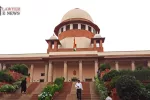Calcutta High Court Affirms Employer Liability in Provident Fund Case: Amalgamated Banks Must Inherit BOT Liabilities

Court upholds penalties on Paschim Banga Gramin Bank for delayed Provident Fund contributions, dismissing claims against Section 14B of EPF Act.
The Calcutta High Court has upheld the imposition of penalties and interest on Paschim Banga Gramin Bank for delayed remittance of Provident Fund contributions. The Court affirmed that the liabilities of the Board of Trustees (BOT) of an amalgamated bank must be inherited by the new entity, dismissing the petitioner’s challenge to the constitutionality of Section 14B of the Employees’ Provident Funds and Miscellaneous Provisions Act, 1952.
The case stems from the amalgamation of Mayurakshi Gramin Bank with Paschim Banga Gramin Bank, effectuated by a notification from the Ministry of Finance on February 26, 2007. Following the merger, the Provident Fund exemption granted to Mayurakshi Gramin Bank was revoked, and the new entity was held responsible for remitting Provident Fund contributions. The Regional Provident Fund Commissioner imposed damages and interest on Paschim Banga Gramin Bank for delayed remittance of contributions for the periods between 1998 and 2013. The petitioner contested the liability, arguing that the BOT was a separate entity and that Section 14B of the EPF Act was unconstitutional.
Liability of Amalgamated Entity:
The Court clarified that post-amalgamation, Paschim Banga Gramin Bank inherited all liabilities of Mayurakshi Gramin Bank, including those managed by the BOT. Justice Partha Sarathi Sen noted, “The undertakings of the transferor Regional Rural Banks shall be transferred to and shall vest in the transferee Regional Rural Bank.” This ruling included the responsibility for delayed Provident Fund contributions.
Credibility of Provident Fund Authority’s Action:
The Court upheld the Provident Fund Authority’s actions, emphasizing that due process was followed. “The summons issued on 31.12.2013 and 12.03.2014 and the subsequent order dated 25.06.2015 show that due opportunity was given to the petitioner to defend their case,” Justice Sen remarked.
Statutory and Constitutional Consistency:
Addressing the petitioner’s challenge to Section 14B of the EPF Act, Justice Sen emphasized that the provision aligns with Section 17(1-A) and Article 14 of the Constitution. “There is no inconsistency between Section 14B and Section 17(1-A) of the EPF Act, and the provision does not violate Article 14 of the Constitution,” the judgment stated.
Employer Responsibility:
The Court reaffirmed that the employer’s liability persists even after establishing the BOT. Justice Sen clarified that the BOT is not an independent entity absolving the employer of responsibilities. “The employer is equally duty-bound to perform his obligations as per the written undertaking given to the Provident Fund Authority,” he explained, referencing clauses 22 and 23 of Appendix A of Para 27AA of the EPF Scheme.
Validity of Section 14B:
Rejecting the petitioner’s argument for reading down Section 14B, Justice Sen cited precedents and legislative intent. He referred to the Supreme Court’s guidance in Arup Bhuyan vs. State of Assam, which emphasized that reading down a statutory provision is impermissible unless the constitutional validity is challenged and the Union of India is given an opportunity to defend it.
“The corroboration provided by the Provident Fund Authority’s thorough process is significant, and there is no arbitrariness in the order imposing damages and interest,” Justice Sen observed.
The Calcutta High Court’s dismissal of the writ petition underscores the judiciary’s stance on employer accountability in Provident Fund matters, particularly concerning amalgamated entities. By upholding the validity of Section 14B of the EPF Act, the judgment reinforces the importance of adhering to statutory obligations and the consequences of non-compliance. This ruling is likely to impact future cases involving similar disputes, bolstering the legal framework for Provident Fund contributions.
Date of Decision: 21st June 2024
Paschim Banga Gramin Bank vs. Union of India & Ors.






